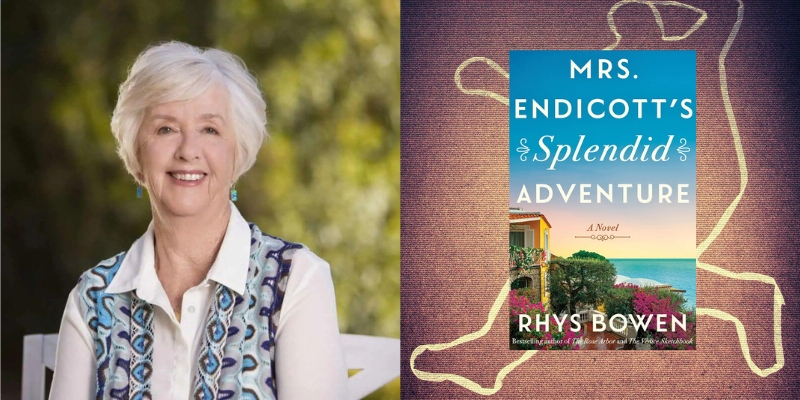I have been writing mystery series for almost thirty years now. First it was Constable Evans, set in the mountains of North Wales, then Molly Murphy in early New York City, and lastly the Royal Spyness books in 1930s London. These latter two are still going strong. Molly is up to book twenty-two and Spyness up to book eighteen.
I enjoy writing them. Each new book is like revisiting old friends.
But I had so many ideas that did not fit into either of their lives. So I started writing historical stand alone novels, many of them set in WWII. The first one was a thriller, a plot by aristocrats to help Hitler invade Britain.
So right in my wheelhouse. Lots of tension and clues. The second was two parallel stories in two timelines, the one story helping to solve the other. So again a big mystery element.
Then I came to The Victory Garden, about a young woman in WWI who becomes a land girl. It’s a touching, tense story, but it’s not a mystery.
I found myself feeling anxious as I wrote it. When are we going to find the body? How can you have a story with no mystery? And so mystery crept in. What happened to the missing heir? What happened to the woman who wrote the herbal book and it seemed that she was burned as a witch? Things we were dying to know.
And I realized then that any good story is a mystery. Even the simplest picture book that starts “one day the little duck found the gate open and wandered into the forest. In the forest lived a hungry fox….” We have tension on page two and the reader wants to know what happens next.
I have actually found that I can’t write a book with no mystery in it. Some are more suspenseful than others. The Rose Arbor, which is a Mary Higgins Clark nominee this year, has a mystery tied to another mystery to another mystery. Missing girls in various time periods, an abandoned village. Oh, and there really is a body! By solving one, a piece is added to the puzzle of another. It was challenging to write but most satisfying.
But my new book, Mrs. Endicott’s Splendid Adventure, is the closest I’ve written to a straight historical novel. My heroine is the perfect wife of a banker in 1930s England. When he asks her for a divorce she is blindsided. He expects her to go away quietly and let him marry a younger version.
Instead, she steals his beloved Bentley and with two other women drives to the south of France. There she finds an abandoned villa and impulsively decides to restore it.
Now we have my mystery. Who would walk away from such a glorious place? What happened to the woman who lived there?
This whole premise was based on my finding such a villa on an Italian lake. Once glorious, now covered in ivy with broken windows and shutters hanging off. Who could abandon such a magnificent building? If they didn’t want it, why not put it up for sale?
Of course, being me, the hopeless romantic, I wanted to buy it and restore it. My practical husband saw that it would be way beyond us both in budget and task ahead. But I still carry a photo of it around on my camera and I enjoyed restoring it vicariously through Mrs. Endicott.
Other mysteries creep into the plot. The enigmatic fisherman Nico. Is he really dangerous? What does he keep in the shed? What about the French girl Yvette? And lastly, I have a villain that nobody suspects who brings the happy story crashing down.
It’s a story I really enjoyed writing: not only the aspect of bringing the villa back to life, but seeing Mrs. Endicott blossoming and finding out the person she was supposed to be. The other women also have a chance for the lives they were meant to have and the story has that great feel of female bonding, which is so important to all of us.
Lastly, the French village where they settle. I got to visit it last year for my research, but then I had the enjoyment of spending six months there in my imagination, going down to get the fresh baguette in the morning, sitting at the bistro eating bouillabaisse. As my heroine says, “This is heaven.”
When you read a book that is not a mystery, do you keep expecting to find the body?So have I now decided to move away from mysteries? Hardly, with new Molly and Royal Spyness books coming out each year.
Oh, and the one I am working on right now? It is a mystery story within another mystery story. A young writer asked to finish a book for an elderly writer with dementia, and as she researches her fictional mystery she realizes it is linked to a real one in the woman’s past. I knew I couldn’t stay away for long!
So tell me, when you read a book that is not a mystery, do you keep expecting to find the body?
***


















